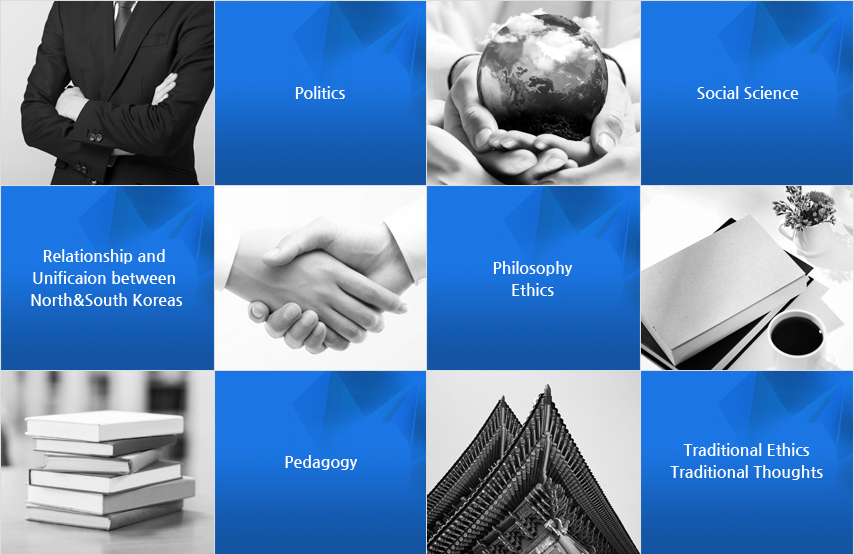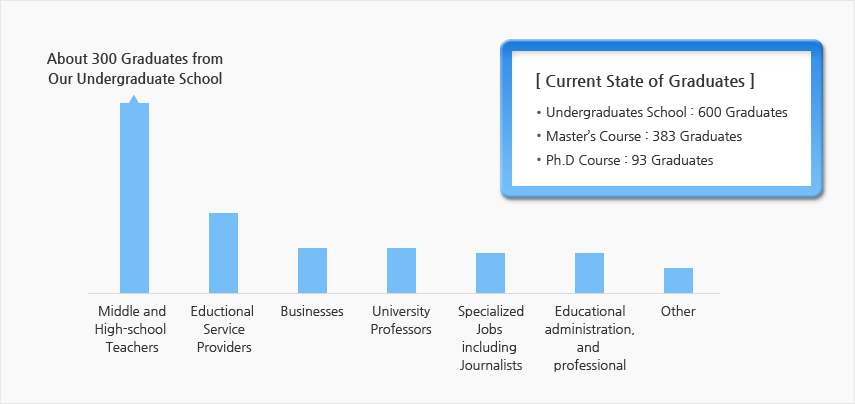Department & History
Welcome to Department of Ethics Education College of Education.
Our department was established in 1977 with the [Major in Public Ethics] in the master's course at the graduate school of Seoul Mational University. At that time, it was a kind of [Cooperative Course] which was not included in the College of Education. The curriculums and entrance exams wre operated by five departments including the Department of Philosophy, the Department of Politics, the Department of Social Science, the Department of Economics and the Department of Education through joint cooperation The lectures were held at night.
As the Department of [Pubic Ethical Education] was newly established at the College of Education in February 28th, 1981 according to the Presidential Ordinance No.10223, new students were allowed to enter the department. Also, in 1981, the [Ph.D course] was established at the Department of Public Ethical Education was new students.
- 2007
-
- The title of the department was changed from the [Department of Public Ethical Education] to the [Department of Ethical Education] in 2007.
- 2001
-
- The international seminar of the "Recovery and Establishment of Trust in the Period Globalization" was held for the 20th anniversary of the department.
- 1981
-
- Establishment of Curriculums at Undergraduate School
- Establishment of Ph.D Course
- The [Department of Public Ethical Education] was newly established at the College of Education in February 28th according to the Presidential Ordinance No.10223 with new students.
- 1977
-
- Establishment of the Master's Course
The main objective of the undergraduate school at our department is to train secondary school teachers who can teach morals and ethics at middle and high schools. We are trying our best to train creative and autonomous people who can theoretically analyze ehical problems which occur in various parts of our society and study potential solutions. the graduate school of our department focuses on specializing the curricuclums of our undergraduate school and training specialists in such fields as curriculum education, ethics, politics and unification.

Our department focuses on the execution of studies for such fields of cultural and social sciences as philosophy, ethics, traditional thoughts and ethics, politics, social science, pedagogy and the relationship and unification between North and South Koreas through the interdisciplinary approach.

※ You can look at the current state of employment by clicking each type of business.
Our department has produced many competent middle and high-school teachers for morals and ethics. At the ame time, we have trained many experts actively working as university professors, educational administrators abd experts at various laboratories and in specialized social fields.







 > Introduction >
> Introduction > 